Whether it’s for health, economic, ethical or environmental reasons (or all of the above!) plant-based diets are becoming increasingly popular. Here, we discuss what it means to follow a plant-based diet, and the 7 key nutrients to be especially mindful of when following this popular pattern of eating.
What is a plant-based diet?
A plant-based diet describes a pattern of eating that – unsurprisingly – heavily features plant-derived foods, including vegetables, legumes, wholegrains, fruits, nuts and seeds. It’s not one-size-fits-all; we love that this way of eating is broad enough to find a version that works for each individual:
- Vegan. Strictly plant-based, with no animal-derived foods (including meat, poultry, fish, seafood, dairy products, eggs and honey).
- Vegetarian. Excludes meat, poultry, fish and seafood, but includes dairy products, eggs and honey.
- Pescatarian. Vegetarian with the inclusion of fish and seafood.
- Flexitarian. Mostly vegetarian, with occasional amounts of meat, poultry, fish and seafood.
What do I need to be mindful of when following a plant-based diet?
A plant-based diet – in any form – requires careful planning. Achieve an adequate intake of seven key nutrients with our tips, below:
- Calcium. Dairy products including milk, yoghurt and cheese are rich sources of calcium – essential for bone health and muscle function – are suitable for the vegetarians amongst us. Those of us following a vegan diet can obtain adequate amounts from calcium-fortified plant-based milks and plenty of other whole foods.
– Plant-based calcium sources include: Calcium-set firm tofu, calcium-fortified plant-based milks (look for at least 300mg calcium per 250 mL serve), unhulled tahini, a variety of nuts and seeds, nori, and green leafy vegetables including kale and rocket.
- Choline. Choline – an essential mineral for healthy cells, memory and cognition, and liver health – is especially important during preconception, pregnancy and postpartum. For those able to eat them, choline can be found in eggs, fish, poultry and meat.
– Plant-based choline sources include: Cruciferous vegetables (including broccoli, cabbage, Brussels sprouts and cauliflower), peanuts and peanut butter (look for products comprising 99-100% peanuts), and wheat germ. Supplementation may be required, and is recommended during pregnancy.
- Iron. Non-haem iron – found in plant-derived foods, and eggs – is not as well-absorbed by the body as haem iron, found only in animal-derived foods. To aid iron absorption, separate dietary sources of iron from tannin-rich foods and drinks such as tea and coffee, and combine each source of iron with a rich source of vitamin C (e.g. citrus fruits, kiwi fruit, tomatoes). Find further tips to boost iron intake and absorption here.
– Plant-based iron sources include: Legumes, tofu, tempeh, a variety of nuts and seeds, and fortified cereals.
- Omega-3. A wealth of evidence highlights the incredibly beneficial role of omega-3 fatty acids in promoting cardiovascular, neurological and other aspects of health, via their powerful anti-inflammatory actions within the body. Oily fish varieties including salmon, ocean trout, mackerel, sardines and anchovies are rich dietary sources of the pre-formed omega-3 fatty acids, EPA and DHA. Some nuts and seeds, such as flaxseeds (linseeds) and walnuts, contain ALA, a form of omega-3 that must undergo conversion within the body to form EPA and DHA. Unfortunately, the conversion rate is incredibly inefficient, at only 4 to 8 per cent, meaning it is difficult to obtain an adequate amount of bioavailable omega-3 from these foods, even when taken as a supplement (e.g. flaxseed oil). For those who are plant-based, it’s best to opt for a dedicated omega-3 algae oil supplement – rich in pre-formed EPA and DHA – instead.
- Protein. Unlike animal-derived proteins (including meat, poultry, fish, seafood, eggs and dairy products), few plant-based protein sources are ‘complete’ proteins that contain all nine essential amino acids. When plant-based, it’s especially important to enjoy a variety of different plant-derived proteins over the course of each day to ensure all bases are covered. Find out how to eat enough protein on a plant-based diet, here.
– Plant-based protein sources include: Soybeans (e.g. edamame, tofu, tempeh, soy milk); legumes; nuts and seeds; wholegrains; quality plant-based protein powder.
- Vitamin B12. Essential for healthy blood cells and neurological function, vitamin B12 is only found in animal-derived products (fish and seafood, beef, lamb, poultry and eggs are all good sources). As vitamin B12 can be stored in the body for years, it may take some time for signs of deficiency to present if it’s not obtained from the diet in adequate amounts.
– Plant-based B12 sources include: Fortified foods (e.g. tofu, plant-based milk, cereals, meat alternatives, nutritional yeast). Supplementation may be required, and is recommended during pregnancy.
- Zinc. Essential for healthy growth and development, as well as immune health, neurological function and reproductive health, zinc is found in greater amounts in animal-derived foods such as seafood (especially oysters), beef and lamb.
– Plant-based zinc sources include: Legumes, nuts and seeds, wheat germ, wholegrains, sundried tomatoes, tofu, fortified foods (e.g. cereals), cocoa powder.
For expert dietary support to meet your nutritional requirements in a way that works for you, book your first appointment with one of our wonderful Accredited Practising Dietitians today.
Written by Caitlin Branch, Student Nutritionist, and Amanda Smith, Accredited Practising Dietitian.



